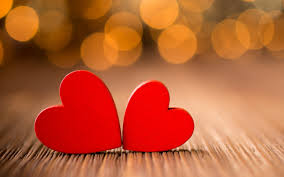The flash of red right before your fist goes flying. That blazing fire that burns down everything it touches, including you. Anger… That destructive force that we all experience but don’t really like or fully understand.
What is it?
Most of us experience anger as aggression. Yelling, arguing, fighting that ranges from verbal to physical. Anger leaves a sense of discomfort and disconnection when it’s experienced as such. And our relationship with it is based on our experience of it as children.
If anger was a violent force in our childhood, we might tend to shy away from it. It’s scary, which will threaten our sense of safety. Or it pushed us away from our loved ones ( if we were sent to our room or isolated in some other way) which threatens our sense of connection. Why would we want to engage in something that is scary and makes us feel alone? Or makes us feel like we’re being mean or not nice because that’s how we saw the person who was anger with us? So we shut down or repress our anger.
For some anger, that display of aggression, becomes a source of power. It helps protect us from fear and insecurities. If something makes us feel small, anger will show up to puff us up and we feel like we have recovered the power that fear takes from us. So then anger becomes your default, and you will use it to maintain that feeling of power to fight off any feelings of helplessness. But you have to then be aggressive as well.
So what then is the balance? What is the point of this emotion? And how do we avoid repressing it and imploding, or expressing it aggressively and exploding? Is there a balance?
Anger at its healthiest is assertion and it’s vitally important for our survival. Anger allows us to defend ourselves. It tells us that something is threatening us and we should take some action to keep ourselves safe. That action doesn’t have to be aggressive. We don’t have to attack the thing/person that is threatening us, but we do need to protect ourselves.
Anger is your friend and shows up when something is threatening you in some way, to help you stay safe. It is asking for you to set a healthy boundary and hold yourself and the other person accountable to that boundary. And if they don’t respect it, it asks you to establish a consequence that will keep you safe from future threats. Anger at its healthiest is asking for that healthy defense, that positive action.
Anger shows up to reach you about yourself. It is your friend if you befriend it. If you take the time to understand it rather than just react emotionally. It will show you your wounds and will allow you to heal them. If you are able to disengage from the energy of anger and drop into your inner self. We tend to step into the energy of anger and often get suck there, blaming or attacking the other person. That blinding force that wants you to destroy something. But instead can you look within and see your woundedness so that you can then protect yourself more effectively? Can you pull back from the emotional response that anger evokes and look at what it is defending? Can you discern what the inner wound is that anger is guarding?
Anger is two parts: the energy of anger and the need for defense. Can you discharge that destructive energy on your own without involving the other person,(go for a run, scream into a pillow, punch a punching bag etc.), then drop into yourself to see what the wound is, and then execute the defense with the other person, by setting that healthy boundary?
Anger doesn’t have to be destructive. And you don’t have to avoid it. It’s just a matter of learning to be assertive, setting boundaries and holding people accountable.
Can you make anger your friend?


